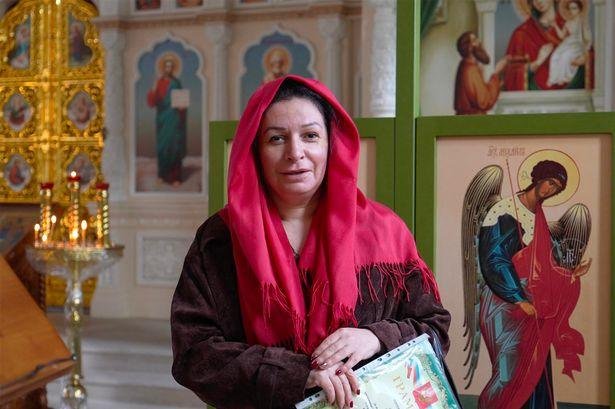Russian Witch Sentenced to Prison: A Tale of Magic and Political Intrigue
In a surprising turn of events, Alyona Polyn, a 45-year-old self-proclaimed witch, has been sentenced to two years in prison by a Russian court. This decision comes despite her previous allegiance to President Vladimir Putin, who once regarded her as a key ally in his unconventional approach to governance. The case has raised eyebrows not only for its bizarre nature but also for the implications it holds regarding the intersection of politics, belief systems, and the law in contemporary Russia.
The Enigmatic Figure of Alyona Polyn
Alyona Polyn, whose real name is Elena Sulikova, has been a controversial figure in Russia, known for her public declarations of support for Putin and her calls for a coven of witches to cast spells on his enemies. Her activities reportedly included urging fellow witches to “return to the abyss” those who opposed the Russian leader. This peculiar blend of mysticism and political loyalty has made her a subject of interest for both supporters and critics of the Kremlin.
Polyn’s connection to Putin’s regime was not merely symbolic. Reports indicate that she had ties to the FSB (Federal Security Service) and SVR (Foreign Intelligence Service), suggesting that her activities may have extended beyond the realm of the supernatural into the political sphere. The Ukrainian security service, SBU, has claimed that she was involved in recruiting witches to assist Russian military efforts, further complicating her narrative as a mere practitioner of the occult.
Arrest and Charges
Polyn’s downfall began when she was arrested by the FSB, which uncovered a trove of items in her possession that included dried bats, ritual daggers, herbs, and various occult paraphernalia. The authorities charged her with “extremism” and “insulting the feelings of believers,” a legal framework that has been increasingly used in Russia to suppress dissent and unconventional beliefs.
The court’s decision to imprison her for two years has sparked discussions about the nature of belief and the role of the state in regulating personal practices. Critics argue that the charges against Polyn reflect a broader trend in Russia, where the government seeks to control not only political dissent but also the spiritual and cultural expressions of its citizens.
Historical Context: The Role of the Occult in Russian Politics
The intertwining of the occult and politics is not a new phenomenon in Russia. Historically, leaders have often turned to mysticism and esoteric practices for guidance. From the mystic Rasputin’s influence over the Romanov family to the rumored consultations of shamans by Putin himself, the fascination with the supernatural has deep roots in Russian history.
In recent years, reports have surfaced suggesting that Putin has consulted shamans regarding military strategies, including the use of nuclear weapons. Such claims, while often dismissed as conspiracy theories, highlight a persistent belief in the power of the occult among some segments of the Russian elite.
The Broader Implications of Polyn’s Sentencing
Polyn’s sentencing raises critical questions about freedom of belief and expression in Russia. The Kremlin’s increasing scrutiny of unconventional practices reflects a broader authoritarian trend, where the state seeks to define acceptable forms of belief and expression. This is particularly concerning in a country where the Russian Orthodox Church has gained significant influence, often aligning itself with state policies.
The case also underscores the precarious position of individuals who operate on the fringes of society. While Polyn was once celebrated for her loyalty to Putin, her fall from grace illustrates the volatile nature of political alliances in Russia. The regime’s willingness to turn on its own supporters, especially those involved in unconventional practices, serves as a warning to others who might tread a similar path.
Conclusion: A Cautionary Tale
Alyona Polyn’s story is a cautionary tale about the complexities of loyalty, belief, and the law in contemporary Russia. Her imprisonment not only highlights the state’s increasing control over personal beliefs but also serves as a reminder of the unpredictable nature of political favor in an authoritarian regime. As the lines between politics and the occult continue to blur, the implications for freedom of expression and belief in Russia remain uncertain. The case of Alyona Polyn may be just one chapter in a larger narrative about the struggle for personal autonomy in a landscape increasingly dominated by state power.











